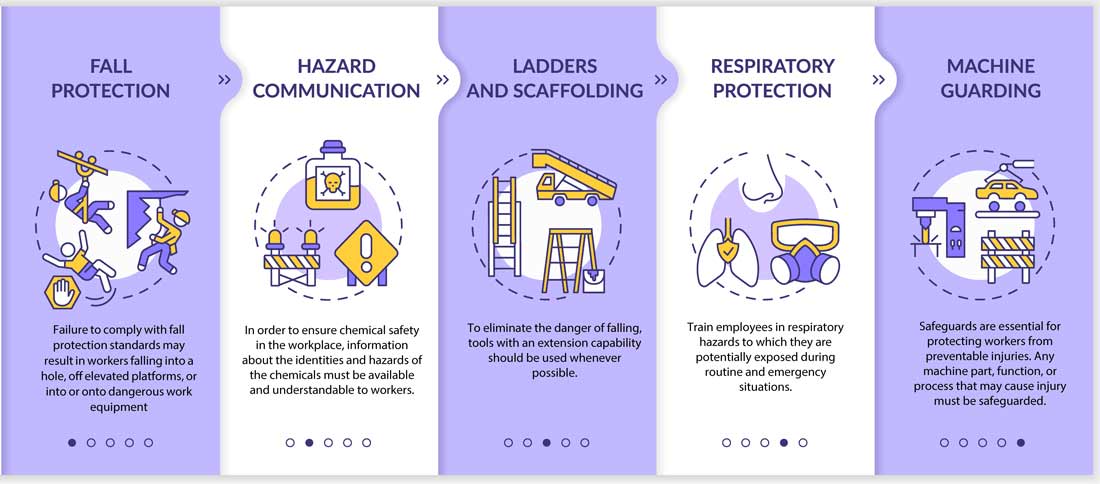
5,333 workers died on the job in 2019. One in five worker deaths were in construction.
The Occupational Safety and Health Act of 1970 was enacted “to assure safe and healthful working conditions for working men and women; by authorizing enforcement of the standards developed under the Act.” With the Act, the Occupational Safety and Health Administration (“OSHA”) was established as part of the United States Department of Labor.
The six (6) most frequently cited standards by Federal OSHA in fiscal year 2020 were:
- Fall Protection (29 CFR 1926.501)
- Hazard Communication Standard, (29 CFR 1910.1200)
- Respiratory Protection (29 CFR 1910.134)
- Scaffolding (29 CFR 1926.451)
- Ladders (29 CFR 1926.1053)
- Control of Hazardous Energy (lockout/tagout) (29 CFR 1910.147)
OSHA standards exist to protect workers from unsafe conditions in the work place. When employers ignore OSHA’s safety standards, it is predictable that workers will suffer serious injury or death.
When workers suffer injuries on the jobsite, those people in charge of safety at the jobsite may be responsible for the consequences of failing to protect workers from these foreseeable dangers.
If you have questions/concerns regarding unsafe conditions at the jobsite that result in serious injury, you should consult a lawyer experienced in handling construction site injury cases. For questions, please contact one of the experienced lawyers at DILLER LAW, PC.
